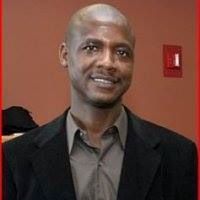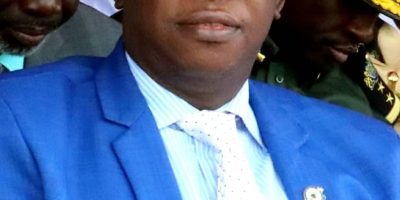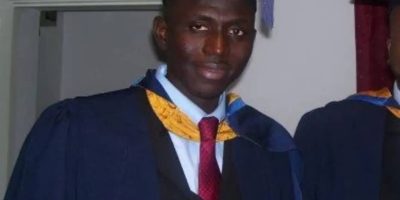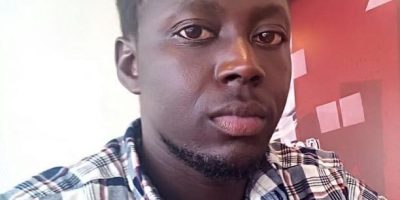Alagi Yorro Jallow
Fatoumatta: The Gambia fetched the wrong firewood with this democracy, and the post-dictatorship rule was all wrong. The person who brings ant-infested firewood home invites lizards to his house. Now, the home of the Gambia has been taken over by all sorts of reptiles. These creepy creatures change their form and appearance and yet remain in control of all of the vital parts of the home. No matter the fumigation by the house owner, the creatures remain—it is an almost hopeless situation.
Today, I wonder if those who routinely use the expression “law and order and constitutional democracy” ask themselves this question: “Where was I during those 22 years of long and dark nights and what did I declare publicly at that time?”
Fatoumatta: Gambians have a short memory. Today, many of those advocating themselves as heroes of democracy were actually collaborating with the miscreants who attempted to annul the December 1, 2016 elections. They fought vigorously to make sure the annulment was not reversed. They said and did despicable things for their political gain and to filthy pocket lucre. However, few remember that situation. Instead, they now grandstand and lecture us on democracy and the resistance to a despotic ruler.
Fatoumatta: If you want a list of these villains turned heroes, please get a copy of the confidential paper titled “The Last 100 Days of Yahya Jammeh.” While reading it, you will marvel at the conduct of the sycophants who have become the latter-day saints of Gambia’s democratic order.
The educated Gambian elites and the political class are classic ambush specialists. The more you run away from the past with its ugliness, the sooner it pours its scented feces on you. The past is a good soldier who is well trained in the strategy of ambushing. It is like an indulged disease that mutates to invincibility. You run from it only to meet its troubles at your every port of rest.
Now, it is customary for the Barrowgovernment’s critics in the Gambia and the Diaspora to use the expression, “Dictatorship or Kleptocratic rule casually.” Those making these exaggerated comments need to look at their own roles during the 22 years of Yahya Jammeh’s kleptocracy. Most of them supported the dictatorship or were absent from any protest against the tyranny and never helped restore democracy.
Fatoumatta: I considered the logical reasoning and thought that if a thermometer used alcohol instead of mercury and still gave accurate readings, one must not ignore the opinion of a drunkard. Essentially, Koto Njie and Pa Sighateh’s reasoning can be deemed as telling the truth and nothing but the truth in the Gambia, where traditionally, all politicians are the same. This is the story of a longshoreman, Koto Njie, a former employee of the Gambia Ports Authority, with his tallyman, Pa Sighateh. They used to live in Bunjang at Churchill Town, loathed politics, and yet politicians would join their colleagues to eat the delicious cow-foot pepper soup and drink Guinness, a draught beer in a bottle chilled for at least a few hours at the Bus Stop Bar during daily happy hours after laborious workdays. They were spiritual loafers and undeclared freethinkers. At the insistence of Yai Compin and Merr Naffie Jobe, the latter a political mobilizer who canvassed to support her political party and her candidate, Koto Njie had a one-line response: “Na, the same people, o!” Despite his neighbor’s efforts to persuade him to engage in politics and to vote in elections, his response remained the refrain: “Na, the same people, o!”
“Which people?”
The hardworking docker worker would not talk or explain anything. “Na, the same people, o” and Pa Sighateh told me “old boy,” he said, “Politicians are the same all over. They promise to build bridges even when there are no rivers.” This is a famous quote from Nikita Khruschev.
Fatoumatta: What the thoughtful dockworker, Koto Njie, would not say was what he saw daily in Banjul: “The same people who patronized the United Party in Banjul South sang their hearts out for Jahumpa’s Party, Pierre Sarr Njie’s, and Sir Dawda Jawara politics during the election season—Na, the same people, o”!
The joke is on you if you are a Gambian. You trusted democracy and its redeeming promises. This one is a scam. The persons we chased out of power are the same ones in a new powerhouse. All these political parties—APRC, NRP, PPP, NPP, and UDP—are the same. Who are the current members of the United Democratic Party national executives and those serving in top executive positions in the government of President Adama Barrow?
Fatoumatta: Who are the top advisors and executive members of the National People’s Party (NPP) and their original political beginnings, the United Democratic Party (UDP)—Na, the same people? The lead singers of light are the new band leaders of darkness. The chorus singers are the same victims who danced in the past—Na, the same people!
These Sosalasso political parties and tangal cheeb politicians in the second republic called these people mosquitoes—habitual bloodsuckers. Undisturbed mosquitoes will continuously feed on your blood. It is their life and future. They will not fly away unless you scare them away or you clear them out.
Fatoumatta: “Why does the same person always appear at the top of my Facebook story views?” one user asked. The explanation from Facebook was, “If you want to get rid of this person, simply unfollow this person.”
It is the same situation with governance. You get what you cultivate. You cannot be a follower of idiots and get excellent leadership. The way to conquer a wrong road taken is to abandon it; in other words, unfollow it.
So, where do we go from here? I am sure I am not the only one asking this question. Hundreds of thousands do every hour of every day. You did not like APRC members in government houses at Marina Parade and the Quadrangle buildings. Yahya Jammeh’s rule was an aberration. You formed the Gambia Democracy Fund (GDF), Democratic Union of Gambian Activists (DUGA), and Movement for the Restoration of Democracy (MRDG) at home and abroad. You fought gallantly, shoulder to shoulder, with freedom fighters and pro-democracy activists. Some died, some went to jail, and some were ruined forever and became the living dead. You, along with many others, suffered, and you lost almost all, but in the end, you won. Alternatively, you thought you had won. Democracy at last on December 1, 2016, as Yahya Jammeh handed over power under duress. He went into exile in Equatorial Guinea.
Never will a dictator rule us again, you vowed, and you were not alone as your comrades joined in this vow. You went to sleep. Then one day, you woke up and looked out the window. You could not believe what you saw. They are the same! Could it be that these people are still in charge? This is the APRC, but the UDP and NPP found a body of patriots. Other parties too—same persons! Why are they dwelling on the past full of soldiers and bullets? You have realized too late that you pressed was the wrong button: 2016 was an ambush! They are the same persons! You are back in the past.
You regrouped, went back to the trenches, and battled long and bloody. You met new faces, made new friends, heard fresh voices with a different message—change. On December 1, 2016, you got to change. There were celebrations across the land.
After one year, two years, three, four years, you cannot believe what you are seeing. The UDP executive is almost the APRC! Those who chanted UDP and NPP “Power” are the ones holding the change microphone today. These are the very ones who once carried power umbrellas and are now holding micro-brooms. The hated, sinful fellows of four years ago are the revered saints on this glorious day. They ambush and conquer.
Fatoumatta: Those ruling the world of darkness are the same ones ruling the world of light. They are amphibious principalities! They ambush, conquer, and use their captives for rituals. Military strategists constantly hail the prime place of ambushes among the outcomes of war. They rarely fail. Hannibal and his small Carthaginian army ambushed impregnable Rome at the battle of Lake Trasimene. Not a single Roman soldier escaped the slaughter.
Fatoumatta: Dictatorship is an assault on all democratic institutions. It establishes the dictatorship of an individual, and it created an environment of tyranny and fear in society. Most institutions collapsed on their own. Many of those who now complain about the “Kleptocratic Rule of President Yahya Jammeh,” were either active or reluctant supporters of a substantive democracy. There was no personal liberty, press freedom, or farcical national assembly. The highest court became subservient to its kleptocracy, and there was no room for dissent. This was an ideal opportunity for the dictator to perpetuate himself. The country witnessed forced sterilization of critical thinking and imagination, mass uprootings, and the misuse of the mass media.
Fatoumatta: You ask how politicians -less than one percent of the population – have managed to conquer and capture the Gambia for themselves and their generation. It happened (and still happens) because the 99 percent carelessly believe there is power in their parade’s vast number. Savage, wild barbarians ambushed an elite Roman Legion three times their size in Teutoburg Forest in 9 AD. They destroyed the entire Roman force. One of the greatest Generals in history is Saladin. A devastating ambush of his 26,000 men by less than 5000 European knights and foot soldiers at the Battle of Montgisard blighted his reputation. The Israel- Arab war of 1967 is called the Six-Day war. However, military historians will argue that “in reality (tiny) Israel won it in six hours.” The powerful enemies suffered ambushes in three aerial attacks, which destroyed 452 Arab aircraft.
What this tells me about the new Gambia is that the much-expected turnaround may come from unexpected quarters. I am not saying I had a vision. However, the usual suspects may not lead to the ethical and political revolution that will unleash the potential of this country.
Fatoumatta: The Gambia is too blessed to be crawling on its chest. How can we have all these resources—human and materials—and be stuck in a cesspool of poverty, disease, unemployment, and corruption? However, the change leader may become the least expected person, one whom we despise or treat with suspicion. In the Gambia, the Sosalasso and tangal cheeb politicians are an unlikely symbol of resistance. He does not look the part, but he plays the role.




Ma sha Allah great and thanks for sharing